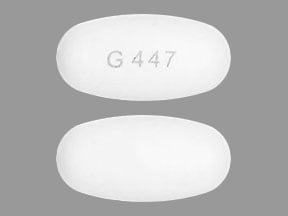
Renagel Coupons & Savings Card – Discount Prices from $58.15
Brand for: Sevelamer hcl
My prescription
Edit
800MG, Sevelamer Hcl (90 Tablets)
Select pharmacy

CVS
$58.15
COUPON PRICE
Walgreens
$108.90
COUPON PRICE
Albertsons
$109.24
COUPON PRICE
Walmart
$182.40
COUPON PRICERenagel savings card
Show this card to your pharmacist
CVS
$58.15
BIN
ID
PCN
GRP
019876
LHB4A66515
CHIPPO
LHX
Powered by
Related phosphate binders prescriptions
More prescriptions for kidney disease
Related phosphate binders prescriptions
More prescriptions for kidney disease
Renagel (Sevelamer Hcl) dosage forms
Dosage Quantity Price from Per unit 800MG 90 Tablets $58.15 $0.65 800MG 1 Tablet $1.45 $1.45 800MG 50 Tablets $40.44 $0.81 800MG 100 Tablets $62.58 $0.63 800MG 180 Tablets $98.00 $0.54
| Dosage | Quantity | Price from | Per unit |
|---|---|---|---|
| 800MG | 90 Tablets | $58.15 | $0.65 |
| 800MG | 1 Tablet | $1.45 | $1.45 |
| 800MG | 50 Tablets | $40.44 | $0.81 |
| 800MG | 100 Tablets | $62.58 | $0.63 |
| 800MG | 180 Tablets | $98.00 | $0.54 |
What is the difference between Renvela and Renagel?
Renvela and Renagel are both medications used to control serum phosphorus levels in patients with chronic kidney disease on dialysis. The primary difference between the two is their active ingredient. Renvela contains sevelamer carbonate, while Renagel contains sevelamer hydrochloride. Sevelamer carbonate (Renvela) is often preferred because it may have a more favorable effect on maintaining bicarbonate levels, which can be beneficial in managing metabolic acidosis. Both medications work similarly to bind phosphate in the digestive tract, preventing its absorption into the bloodstream.
How much does Renagel cost?
The cost of Renagel can vary depending on factors such as the pharmacy, location, insurance coverage, and dosage. It is recommended to check with local pharmacies or insurance providers for the most accurate and up-to-date pricing information. Additionally, some patients may qualify for manufacturer discounts or assistance programs that can help reduce the cost.
Is sevelamer over the counter?
Sevelamer is not available over the counter. It is a prescription medication and should be used under the guidance of a healthcare provider.
What is Renagel used to treat?
Renagel is used to treat hyperphosphatemia, which is an elevated level of phosphate in the blood, in patients with chronic kidney disease who are on dialysis.
Are Renagel and Renvela the same?
Renagel and Renvela are similar medications, as both contain the active ingredient sevelamer. However, they differ in their formulation. Renagel is sevelamer hydrochloride, while Renvela is sevelamer carbonate. Both are used to control serum phosphorus levels in patients with chronic kidney disease on dialysis, but the choice between them may depend on specific patient needs and physician preference.
